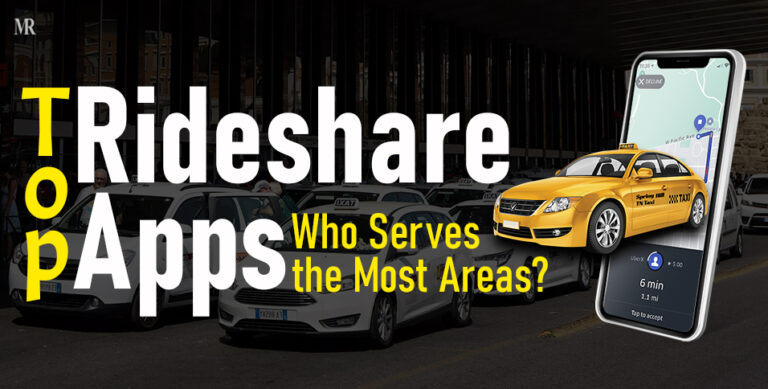Rideshare apps are revolutionizing travel globally. Consequently, imagine that by 2033, this market will soar to $361.3 billion. They’ve become indispensable, haven’t they? You’ve seen them everywhere, connecting cities and simplifying commutes. Moreover, now they’re shaping our future.
Curious about which ones lead the pack? Well, this blog unveils the top 10 rideshare apps of 2024, serving the most areas.
Stay tuned as we navigate the bustling streets of ride-sharing innovations. Along the journey, you’ll discover not just apps but lifelines that have taken over the world. Let’s begin!
Below Are The Top 10 Rideshare Apps Serving The Most Areas
1. Uber

- Headquarters: San Fransisco, USA
- Founded in: 2009
- Founder: Travis Kalanick, Garrett Camp
- Area Served: 70 countries
Uber one of the most popular rideshare apps has revolutionized the concept of ridesharing, becoming a household name synonymous with convenience and innovation. As a pioneer in the rideshare industry, Uber offers a range of services, including standard car rides, luxury options through Uber Black, and accessibility services with Uber Assist and WAV (Wheelchair Accessible Vehicles). Additionally, the company has expanded into delivery services with Uber Eats, providing a platform for food delivery from local restaurants.
In the USA, Uber’s popularity is undeniable. It has become an integral part of urban transportation, with many Americans relying on it for daily commutes, airport transfers, and more. According to Statista, Uber’s user base in the United States is vast, with 130 million users as of 2023.
The following are some of the unique features of the app that not many people know:
- Split Fares
- Multiple Drop-offs
- Another Rider
- Scheduled Rides
- Calendar Shortcuts
2. Didi Chuxing (DiDi)
- Headquarters: Beijing, China
- Founded in: 2012
- Founder: Cheng Wei, Liu Qing, Zhang Bo, Wu Rui
- Area Served: 17 countries
Next, in the list of rideshare apps, we have the DiDi app. Didi Chuxing, commonly known as DiDi, is not just a major player in the ride-hailing industry; it’s the dominant force in China’s vast market. With a commanding presence, DiDi has become synonymous with urban transportation in China, with a user base of 84 million monthly users. This staggering number underscores its sheer scale and influence in the region.
While DiDi’s dominance in China is unquestionable, its ambitions for international expansion, particularly into the U.S. market, have been put on hold. The company had to shelve its plans for global growth, including potential U.S. expansion, due to various challenges and strategic reassessments. However, partnerships remain a key part of DiDi’s strategy as they explore collaborative opportunities within the shared mobility space, which could pave the way for future endeavors outside of China.
The following are unique to the ride-hailing app DiDi:
- D1: The world’s first electric vehicle custom-designed for ride-hailing services.
- Location Tracking
- Passenger SOS
- Masking Feature: For passenger’s privacy
3. Lyft
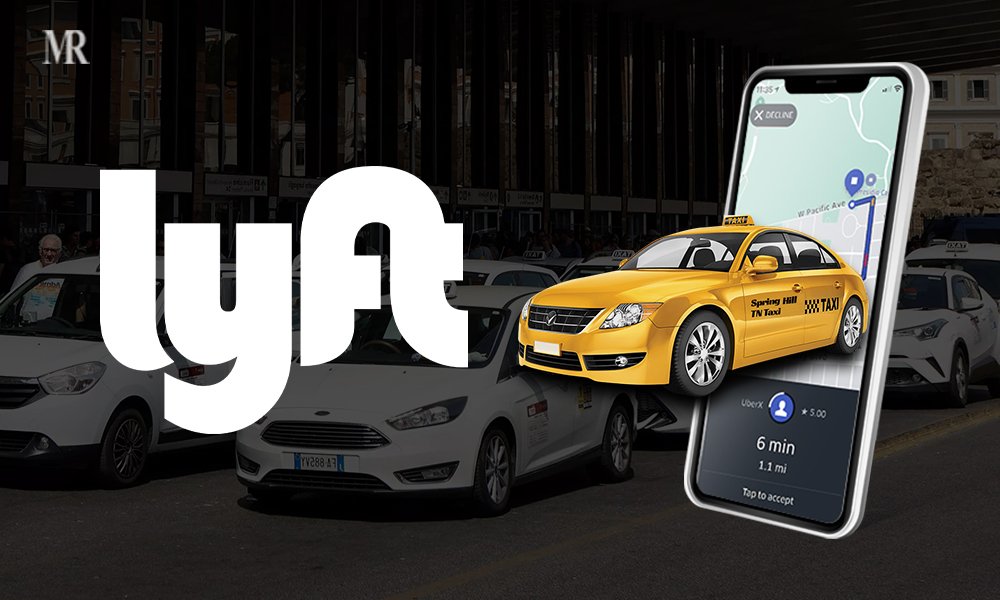
- Headquarters: San Francisco, California, United States
- Founded in: 2012
- Founder: John Zimmer, Logan Green
- Area Served: 2 countries
Lyft, also one of the prominent rideshare apps, has solidified its presence in major US cities, offering a convenient and reliable transportation alternative. Moreover, it has a user base of 21.4 million users. Its expansive network ensures that whether you’re in bustling New York or sunny Los Angeles, a Lyft ride is just a tap away.
In the realm of eco-friendliness, Lyft has taken significant strides. Notably, the company has committed to full carbon neutrality and uses renewable energy to power its electric vehicle miles, demonstrating a steadfast dedication to environmental sustainability.
For US business travelers, Lyft presents a suite of features designed to streamline their travel experience. Through partnerships across the travel ecosystem, Lyft integrates with travel management and expense systems, making business trips hassle-free. Additionally, travelers can earn rewards, enjoy upgraded experiences, and rely on dedicated support, ensuring that business travel is both efficient and enjoyable.
Lyft’s unique features extend beyond business travel. They are as follows:
- The Women+ Connect feature
- Smart Trip Check-In
- In-app emergency assistance
4. Careem
- Headquarters: Dubai, United Arab Emirates
- Founded in: 2012
- Founder: Mudassir Sheikha, Magnus Olsson
- Area Served: 10 countries
Surprisingly, Careem is also one of the popular rideshare apps. Furthermore, Careem’s journey to becoming the ride-hailing colossus in the Middle East and North Africa (MENA) is a testament to strategic growth and understanding of regional needs. Established in 2012, Careem quickly filled the gap in public transportation infrastructure across the region, offering a reliable and convenient service that resonated with millions.
Additionally, its acquisition by Uber for $3 billion not only marked the largest tech deal in the MENA region but also solidified Careem’s dominance, operating in more cities than Uber and becoming the go-to transportation network.
Looking ahead, Careem is not resting on its laurels. The recent acquisition of a majority stake in Careem’s Super App by UAE-based communication firm e& for $400 million is a bold move towards expansion. This investment aims to transform Careem into the first ’everything app’ in the Middle East, expanding its core services and adding more partner services to the app. With e&’s extensive customer base and experience, Careem is poised to scale new heights in the digital space.
Careem’s unique features set it apart in a competitive market. They are:
- Schedule rides in advance
- Customer support agent available for safety
- Food and grocery delivery
- Micro-mobility
5. Ola
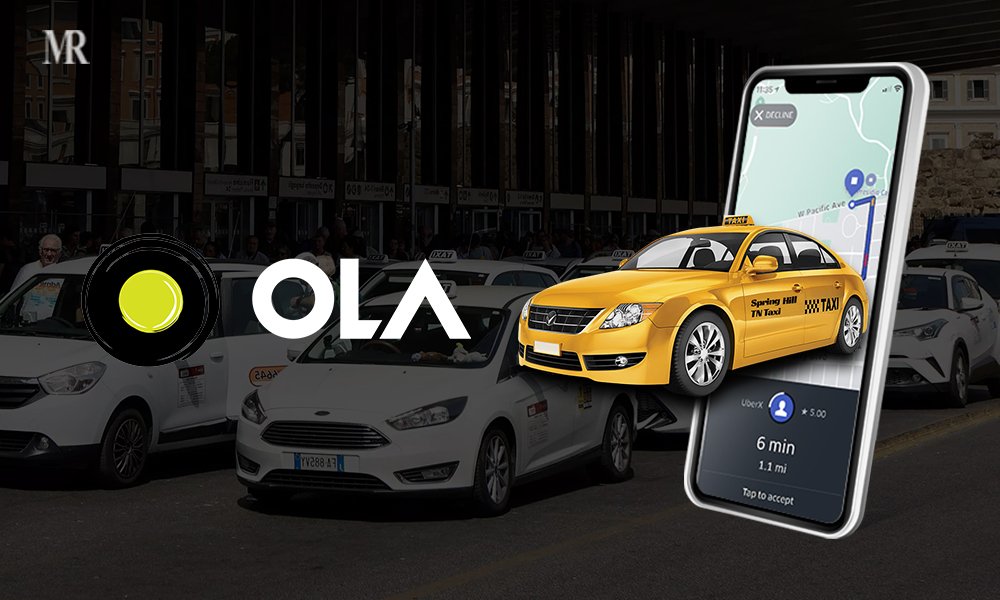
- Headquarters: Bangalore
- Founded in: 2010
- Founder: Bhavish Aggarwal Ankit Bhati
- Area Served: 4 countries
Moving on to the list of popular rideshare apps, we have Ola. Firstly, this app’s dominance in the Indian market is a remarkable story of local innovation and strategic growth. As a homegrown ride-hailing service, Ola has consistently held a significant market share, rivaling international giants like Uber.
Moreover, with a deep understanding of local consumer behavior and preferences, Ola has tailored its services to meet the unique demands of Indian customers, accepting cash payments and offering a multilingual app, which has been crucial in securing its position as a leader in the Indian market. Notably, Ola has a user base of 23.96 million users.
Transitioning to Ola’s expansion plans and partnerships, they reflect its ambition to innovate and grow beyond the Indian market. For instance, the company has announced a research collaboration with the Indian Institute of Technology Bombay (IIT-B) on artificial intelligence (AI), aiming to foster a new generation of AI talent. This partnership will see selected students and faculty from IIT-B engage in cutting-edge research, supported by the Ola Graduate Fellowship Program.
Additionally, Ola is set to partner with the Open Network for Digital Commerce (ONDC) to offer last-mile logistics services. This strategic move will leverage Ola Electric’s fleet of electric two-wheelers, marking a significant step towards environmentally friendly transportation.
Ola’s app’s unique features are as follows:
- Ola Play for in-cab entertainment
- A dedicated 24/7 customer support team
- In-app emergency assistance
- Electric 2-wheelers
6. BlaBlaCar
- Headquarters: Paris, France
- Founded in: 2006
- Founder: Frédéric Mazzella, Nicolas Brusson, Francis Nappez
- Area Served: 21 countries
In 2023, BlaBlaCar’s stronghold in the French market was reflected in its substantial user base, with 80 million passengers booking travel through its platform. This impressive figure underscores the company’s preferred status for intercity travel in France, showcasing a robust growth trajectory and a deep-rooted presence in the transportation sector.
BlaBlaCar’s business model revolves around long-distance ridesharing, offering a cost-effective, social, and environmentally friendly travel option. By connecting drivers with empty seats to passengers heading in the same direction, BlaBlaCar facilitates shared journeys, reducing travel costs and carbon emissions. This approach not only benefits budget-conscious travelers but also fosters a sense of community among users.
Additionally, BlaBlaCar has secured a significant loan of €100 million because it’s been making money for the past two years. In 2023, they made more than €250 million. This influx of capital will help them grow by acquiring other companies, especially those that are having a hard time securing funding.
The following are the unique features of BlaBla Car:
- Community focus
- Trust and verification
- Combining carpooling with buses
- Environment-friendly travel
7. Cabify
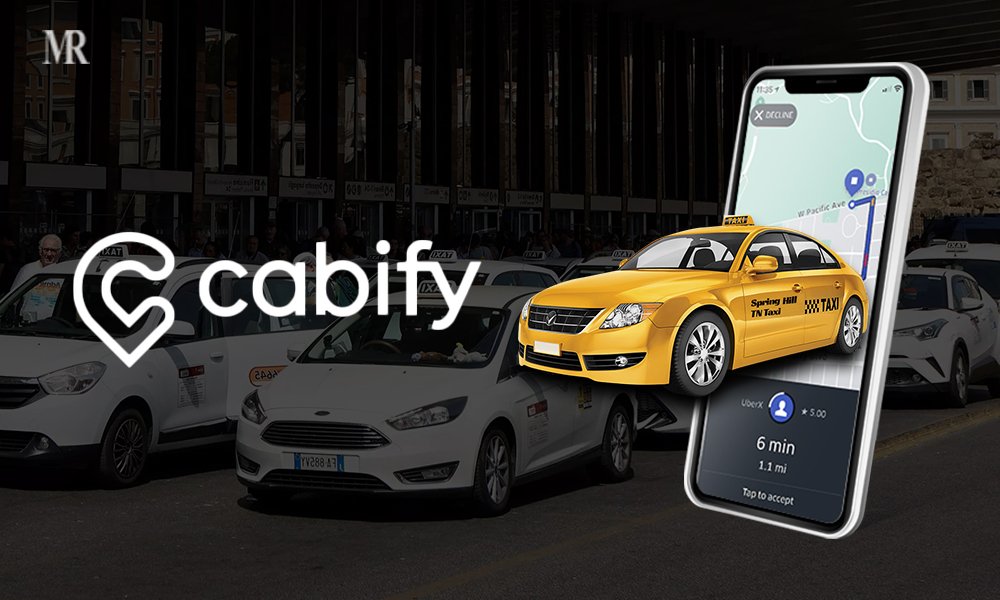
- Headquarters: Madrid, Spain
- Founded in: 2011
- Founder: Juan de Antonio
- Area Served: 9 countries
Cabify, a prominent player in the ride-hailing market, has established a robust presence in Europe and Latin America, offering a sustainable and efficient transportation alternative. With a mission to improve city living, Cabify has expanded rapidly across countries.
Furthermore, the company’s growth trajectory includes ambitious expansion plans and strategic partnerships. Recently, Cabify secured $110 million in funding to bolster its operations in existing markets and to introduce more electric vehicles into its fleet, aiming for all rides to be zero-emission by 2025 in Spain and by 2030 in Latin America. Additionally, Cabify has partnered with Incode Technologies to enhance driver security through selfie identity verification technology, reflecting its commitment to safety.
Moreover, Cabify’s unique logistics service sets it apart in the ride-hailing landscape. Cabify Logistics offers tailored solutions for businesses, including scheduling, storage, and last-mile distribution. With its warehouse facilities, the company ensures successful product delivery to end customers. This service is complemented by real-time tracking, professional delivery drivers, and a commitment to offsetting 100% of emissions, showcasing Cabify’s dedication to sustainability and customer satisfaction.
The following are the unique features of Cabify:
- Accessibility focus: Unique rides for people with disabilities
- In-app chat
8. Bolt
- Headquarters: Tallinn, Estonia
- Founded in: 2013
- Founder: Markus Villig
- Area Served: 45 countries
Bolt is one of the rideshare apps that prioritizes affordability in urban mobility. Customers enjoy low-cost, comfortable rides without the worry of surge pricing. This approach not only makes transportation more accessible but also challenges the industry’s standard pricing models.
Bolt’s is pioneering food delivery via self-driving robots, a testament to its innovative edge. Bolt’s growth strategy includes nurturing partnerships and expanding its ’super app’ capabilities. Additionally, Bolt Business is evolving, offering features like customizable coupons, catering to diverse corporate needs. These strategic moves showcase Bolt’s commitment to expanding its services and enhancing user experiences.
The ride-hailing app Bolt has the following unique features that you may not know. They are:
- Save your favorite locations
- Precise pickup location
- Multiple stops
- Trip sharing
- Edit your destination during a ride
- Emergency assist
- End your trip: In case you don’t feel safe in the car
9. Grab
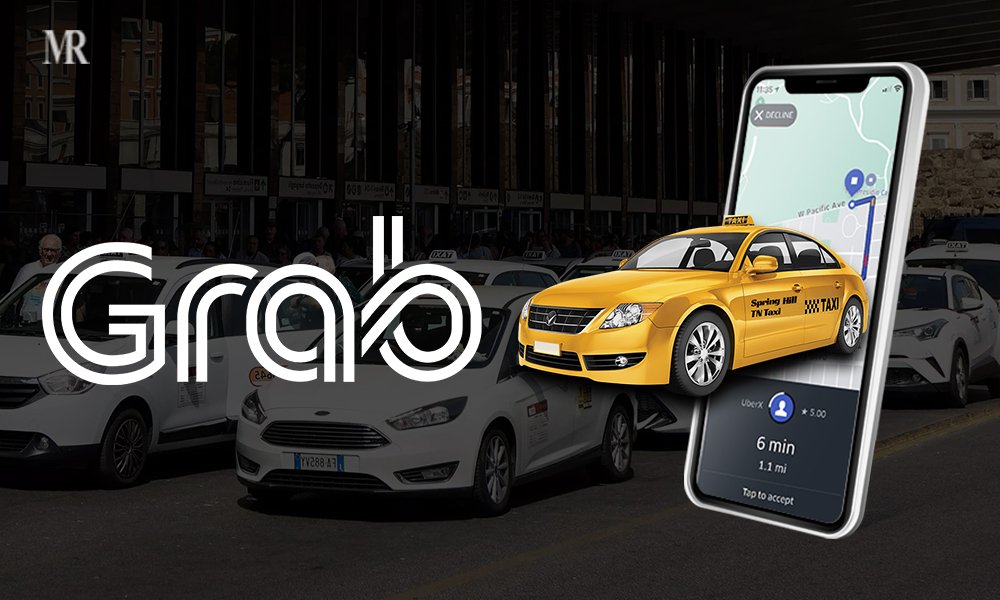
- Headquarters: Singapore
- Founded in: 2012
- Founder: Anthony Tan and Tan Hooi Ling
- Area Served: 8 countries
In the dynamic landscape of Southeast Asia, one of the rideshare apps, Grab, has emerged as a formidable player. With a staggering 35.5 million monthly users in 20231, Grab’s dominance is evident. This impressive user base underscores its success in a region where digital solutions are rapidly transforming everyday life.
Expansion plans and strategic partnerships are pivotal to Grab’s growth trajectory. Notably, the potential acquisition of BluSmart could significantly shake up India’s ride-hailing sector.
Furthermore, Grab, after years of rapid expansion, is now focusing on empire-building. The ridesharing app giant’s acquisition of Trans-Cab signals this shift, potentially adding 2,200 taxis and over 300 private-hire vehicles to its fleet. This move, costing over $100 million, aligns with Grab’s ambition to become Southeast Asia’s “super app” and reach profitability by 2025. However, it raises concerns about reduced competition and higher commuter fees.
Grab’s unique features set it apart in a competitive market. They are as follows:
- Silent Mode
- Safety Centre feature
- Carbon Offset
- Ride Cover
- Multi-Stop Rides
- Sayanora
10. Gett
- Headquarters: London, UK
- Founded in: 2010
- Founder: Shahar Waiser, Roi More
- Area Served: 4 countries
Lastly, in the list of rideshare apps, we have Gett. The global rideshare app has established a formidable presence in Israel, becoming synonymous with efficient urban mobility. In Israel, Gett’s dominance is evident through its consistent profitability and robust growth in both B2B and B2C segments. Despite challenges, such as regional conflicts, Gett has shown resilience, maintaining a strong performance and even securing a significant contract with the Israel Airports Authority.
Gett has joined forces with Curb Mobility in the US, thereby expanding its service offerings and reinforcing its commitment to corporate Ground Transportation Management (GTM). Gett has introduced digital taxi kiosks at Ben Gurion Airport, Israel’s primary international gateway. This innovative service allows passengers to book taxi trips using a tech-based platform, thereby streamlining the process and improving the overall airport experience.
Moreover, as the sole provider, Gett’s system manages queues and offers customer service, marking a significant step in modernizing airport operations. This initiative is part of the Israel Airports Authority’s efforts to integrate new technologies, thus enhancing convenience for both passengers and drivers.
The following are the unique features of the Gett app which very few people know:
- ETA
- Multiple payment options
- Social login
- Split fare
Conclusion
This blog explored the top 10 rideshare apps in the world. Additionally, we identified their regional strengths. Moreover, we discussed their recent partnerships, sponsorships, and news. Furthermore, the unique features of each rideshare app were highlighted. Enjoyed this content? Visit Mirror Review for more!
Thanks for reading!


